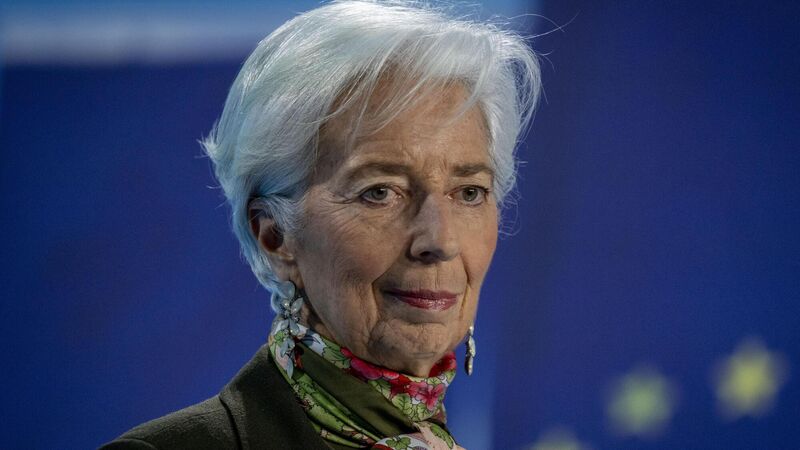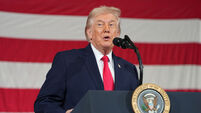Shares hit as ECB set to keep rates 'higher for longer'

President of the European Central Bank Christine Lagarde previously said further hikes for the eurozone could not be ruled out.
European shares fell sharply in a broad-based selloff, pressured by rising bond yields as major central banks across the world hinted at keeping borrowing costs elevated for longer.
The pan-European Stoxx index closed lower by more than 1%, with travel and leisure stocks and technology shares fallling more than most. In Ireland, shares in AIB and Bank of Ireland ended 3.3% and 2.5% higher, while Ryanair fell 1.5%.














